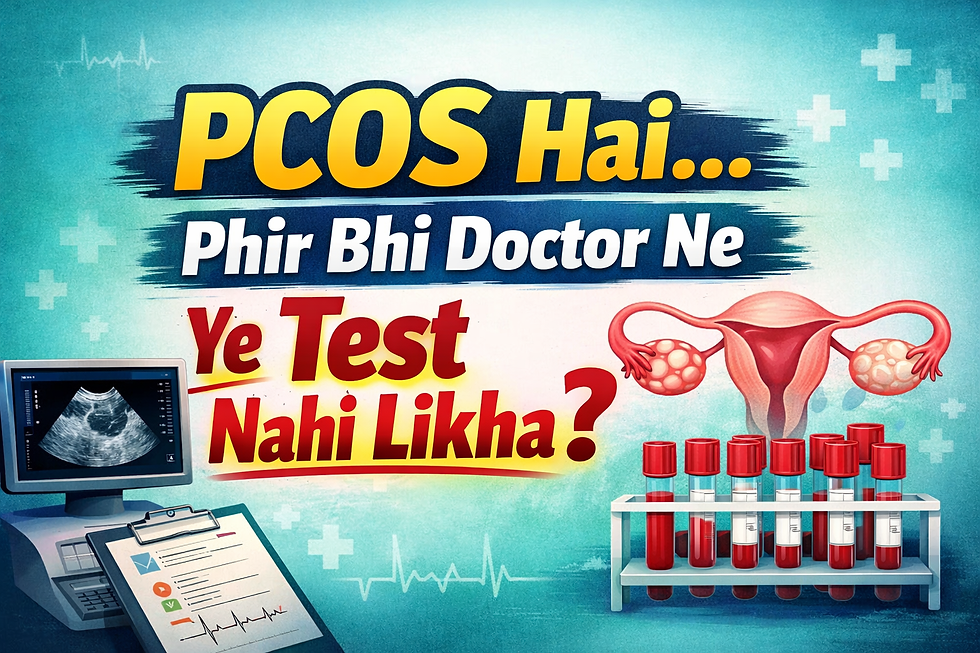
Can Diabetes Increase the Risk of Miscarriage? Understanding the Connection
- Chakrakosh
- Jan 28, 2025
- 3 min read
Updated: Feb 1, 2025
Pregnancy is a beautiful journey filled with anticipation and joy, but for women with diabetes, it can also come with unique challenges. One of the most concerning issues is the increased risk of miscarriage. In this blog, we’ll explore how diabetes affects pregnancy, the potential risks involved, and what steps can be taken to ensure a healthy journey to motherhood.
What is Diabetes?
Before diving into the specifics of pregnancy, it's essential to understand what diabetes is. Diabetes is a chronic condition that occurs when the body either cannot produce enough insulin or cannot effectively use the insulin it produces. There are three main types:
Type 1 Diabetes: An autoimmune condition where the body attacks insulin-producing cells in the pancreas.
Type 2 Diabetes: Often linked to lifestyle factors, this type involves insulin resistance and can sometimes be managed with diet and exercise.
Gestational Diabetes: This type occurs during pregnancy and usually resolves after childbirth but can increase the risk of developing Type 2 diabetes later in life.
The Link Between Diabetes and Miscarriage
Research indicates that women with diabetes face a higher risk of miscarriage compared to those without the condition. Here’s why:
1. Blood Sugar Levels Matter
High blood sugar levels (hyperglycemia) can lead to complications during pregnancy. Elevated glucose levels, especially in the early stages, may interfere with fetal development and increase the likelihood of miscarriage.
2. Hormonal Changes
Diabetes can affect hormone levels, which play a crucial role in maintaining a healthy pregnancy. Imbalances may contribute to an increased risk of miscarriage.
3. Underlying Health Issues
Women with diabetes often have other health conditions—such as hypertension or obesity—that can further complicate pregnancy and increase miscarriage risk.
Managing Diabetes for a Healthy Pregnancy
While the risks associated with diabetes are significant, there are proactive steps that women can take to reduce their chances of miscarriage:

1. Preconception Planning
If you're planning to conceive and have diabetes, it’s vital to consult your healthcare provider. They can help you achieve optimal blood sugar control before pregnancy, which is crucial for reducing risks.
2. Regular Monitoring
Once pregnant, regular monitoring of blood sugar levels becomes even more critical. Keeping glucose levels within target ranges can help protect both mother and baby.
3. Healthy Diet and Exercise
A balanced diet rich in nutrients and regular physical activity can help manage blood sugar levels effectively. Working with a nutritionist who specializes in diabetes management during pregnancy can provide tailored advice.
4. Medication Management
Some medications may need adjustment during pregnancy. Discuss any changes in your medication regimen with your healthcare provider to ensure both safety and efficacy.
5. Emotional Support

Pregnancy can be an emotional rollercoaster, especially for women managing diabetes. Seeking support from family, friends, or professional counselors can provide comfort and guidance throughout this journey.
Conclusion
While diabetes does increase the risk of miscarriage, understanding these risks empowers women to take control of their health and make informed decisions. With proper management, support, and medical care, many women with diabetes go on to have healthy pregnancies and beautiful babies.
If you or someone you know is navigating pregnancy with diabetes, remember: knowledge is power! Share this information and encourage open conversations about managing health during this significant time. By staying informed and proactive, women with diabetes can embrace their pregnancy journey with confidence and hope for a healthy future for themselves and their little ones!






Comments